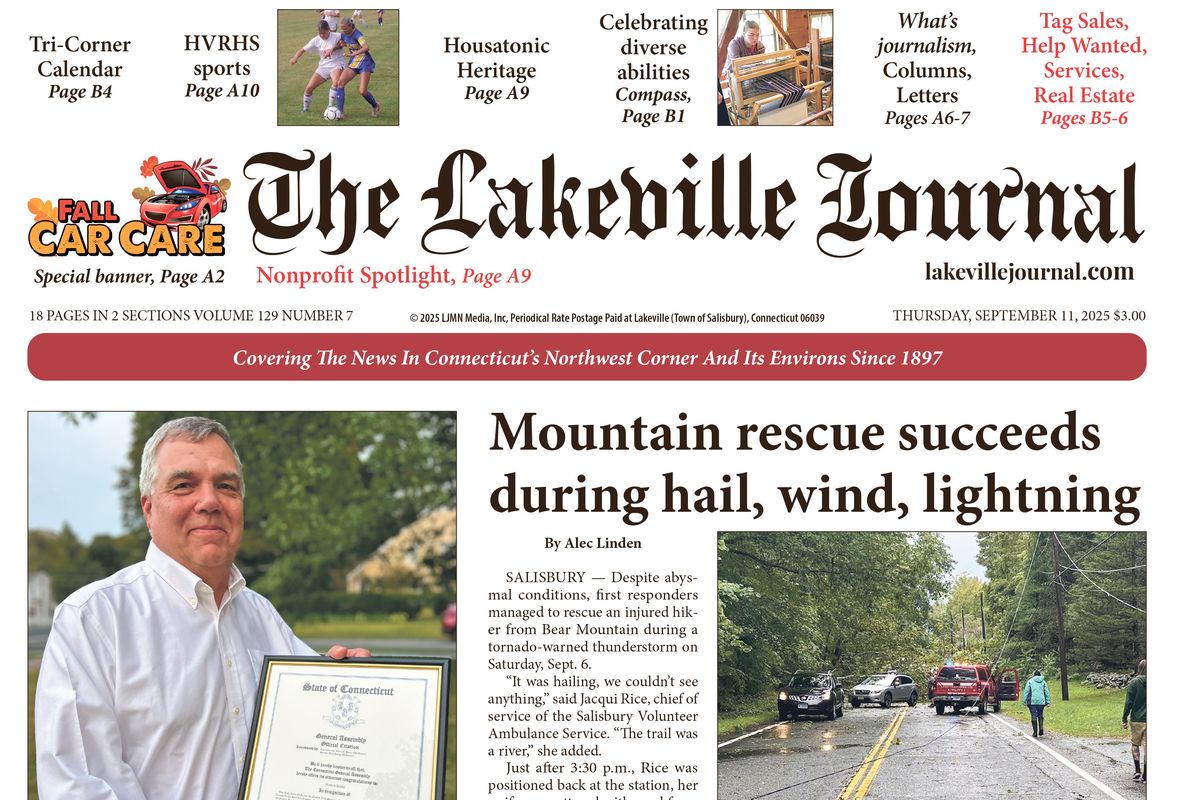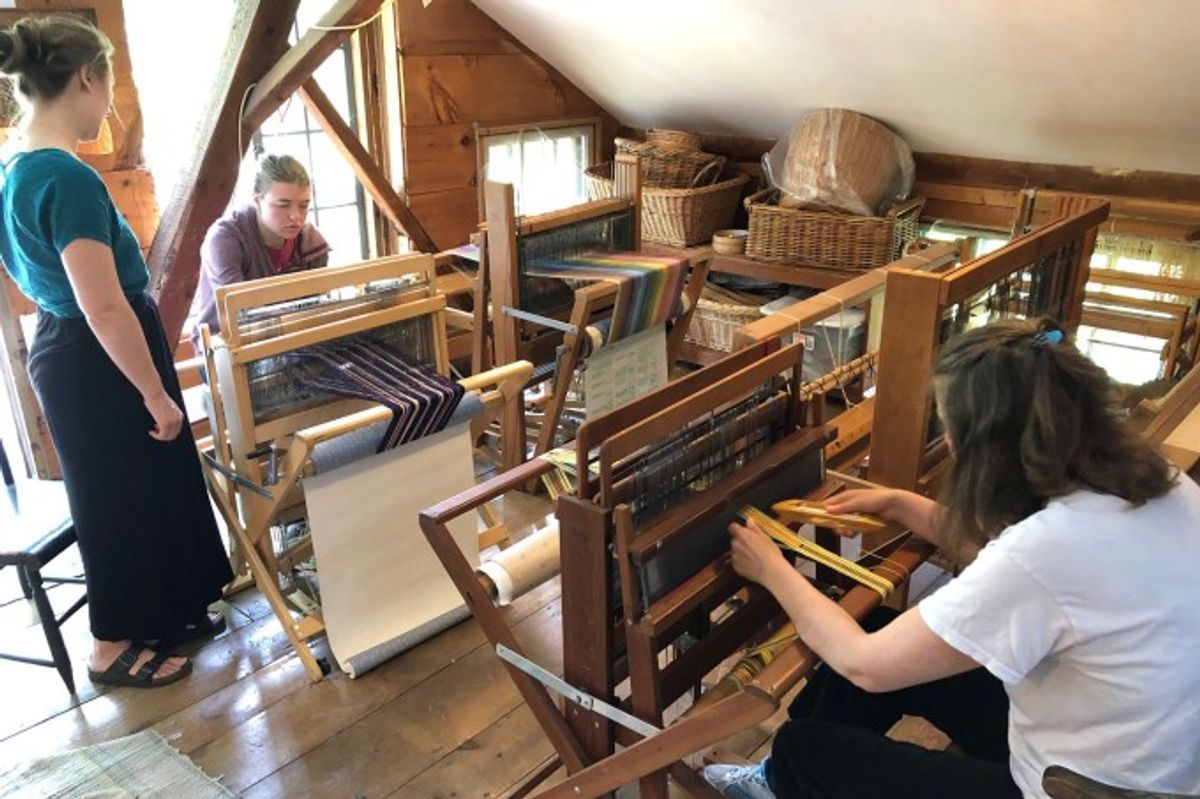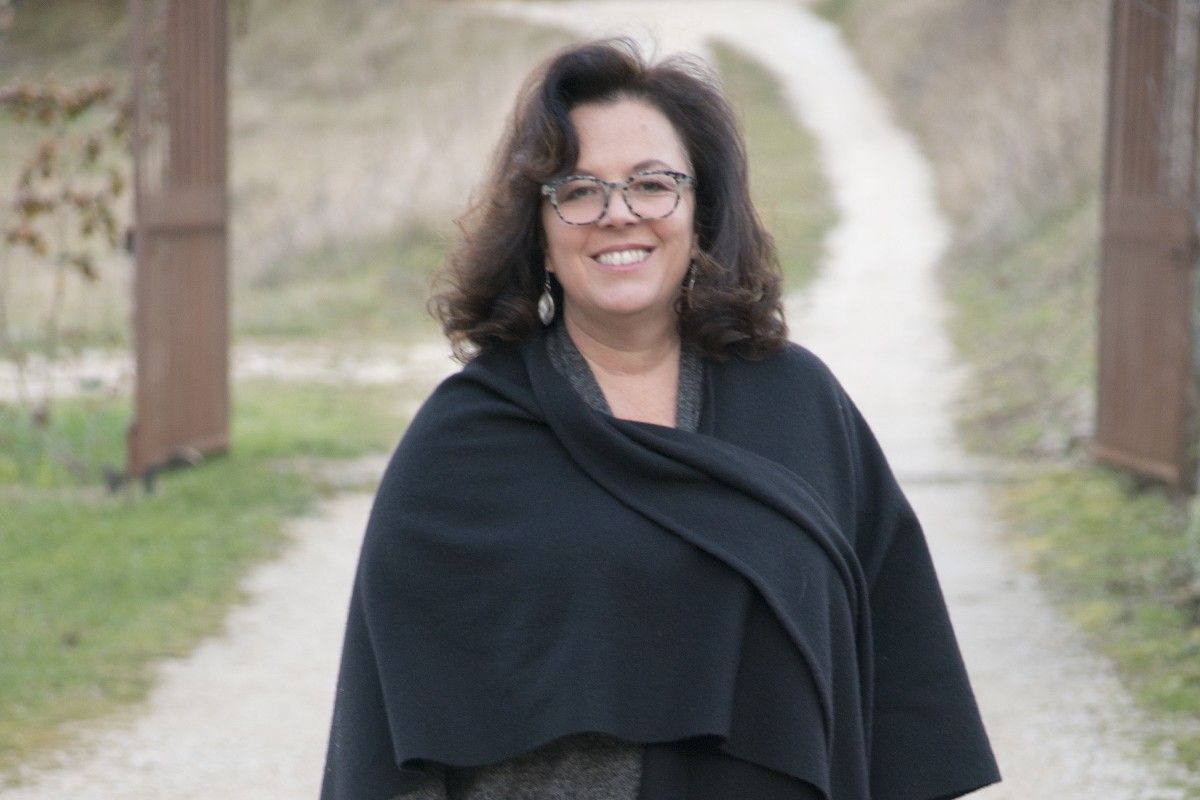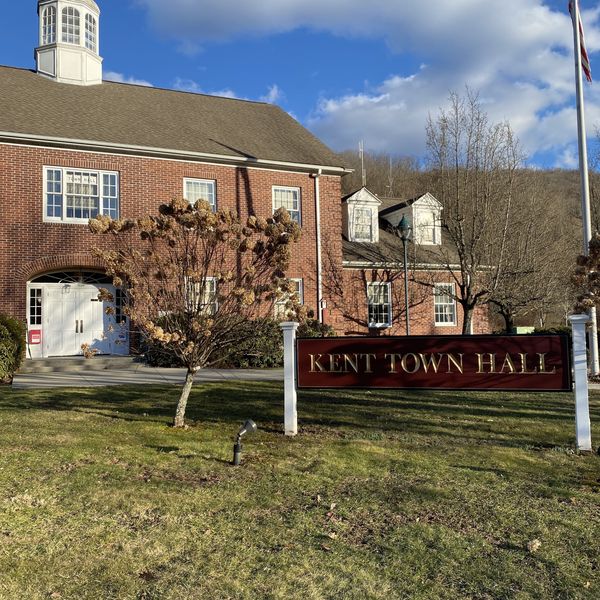Latest News
The Weavery is Stanton Home’s oldest activity space, featuring a collection of vintage and modern floor looms. It offers opportunities for building dexterity, creative expression, and social connection through fiber arts.
Provided
Stanton Home is holding its annual Harvest Roast fundraiser on Saturday, Sept. 13 in Great Barrington, an evening of farm-to-table dining, live swing music, and community connection.
For nearly 40 years, Stanton Home has supported adults with intellectual and developmental disabilities through residential programs, therapeutic services and skill-building activities.
“Here in the Berkshires, adults with diverse abilities often face barriers like limited housing, tricky transportation, and fewer opportunities for meaningful work,” said Executive Director Peter Stanton. “Stanton Home flips that script. Our mission is to partner with adults to pursue healthy, self-determined lives.”
The Harvest Roast features locally grilled meats, roasted vegetables from Stanton’s own gardens, warm apple crisp with SoCo Creamery ice cream, and beverages —all set to the swing and gypsy jazz rhythms of the Lucky 5 Band.
“The Harvest Roast is a celebration of what makes our community strong, inclusive, and vibrant,” Stanton said. “Every ticket and sponsored table supports programs that make a lasting difference.”
Guests will begin in the gardens with a signature cocktail before gathering at long farm tables for a shared meal and celebration.
“Though this night matters, the work is year-round,” Stanton added. “People can help by shopping locally at the farm store or buying handmade weavery goods, pitching in with time or skills, gardening, lending a hand at events or by partnering with Stanton’s programs like composting or sourcing local goods. Folks can also speak up for inclusion in their workplace or community circle. Even the smallest action helps keep the mission alive.”
Tickets are $125 per person. Proceeds support Stanton Home’s inclusive programs. Reserve at donorbox.org/events/771775/steps/choose_tickets or call 413-441-0761.
Keep ReadingShow less
Charles Busch wrote and stars in ‘Die Mommie Die!’ at Sharon Playhouse.
Provided
Following the memorable benefit reading last season of Charles Busch’s Tony-nominated Broadway hit, “The Tale of the Allergist’s Wife,” the Sharon Playhouse will present a one-night-only staged reading of his riotous comic melodrama “Die Mommie Die!” on Friday, Sept. 12 at 7 p.m.
The production —a deliciously over-the-top homage to classic Hollywood mid-century thrillers — continues the Playhouse’s artistic partnership with Busch, who reprises his iconic role of the glamorous yet troubled songstress Angela Arden.
The playwright and performer is no stranger to the Playhouse and, luckily, he’s supported by a truly stellar powerhouse cast of top-notch comic actors — some returning to the Playhouse stage, and some making their debut. The cast includes Richard Kind; two-time Tony Award nominee Kristine Nielsen, who was part of the original New York cast; Tony Award winner Celia Keenan-Bolger; Andrew Keenan-Bolger; and Claybourne Elder.
The production also marks a fortuitous alignment of talent and history. It is directed by Sharon Playhouse Artistic Director Carl Andress, who performed in the play’s Los Angeles premiere in 1999.
“I have a long and happy history with this particular show,” Andress said. “At the Sharon Playhouse, we’re thrilled to offer unforgettable, one-of-a-kind live experiences. With Charles Busch and this phenomenal cast, ‘Die Mommie Die!’ will surely light up the Olsen Stage with laughter, wit and glamour.”
The original music is by Lewis Flinn, whose score for the 2007 Off-Broadway production is being adapted specially for this event.
The play is a classic Charles Busch concoction that, like all his work, lovingly and intelligently spoofs some of the greatest talents and tropes of stage and screen. The original production was praised by critics as his “funniest, most accomplished and, without question, raunchiest work.”
In 2003, Busch won the Best Performance award at the Sundance Film Festival for the film version of “Die Mommie Die!” His indelible contributions to American theater have been recognized with countless awards and he was recently inducted into the Theater Hall of Fame.
The event promises to be an unforgettable night of laughter, glamour and theatrical fun, with all proceeds going to benefit Sharon Playhouse’s productions and educational programs. The funds will help ensure that the Playhouse continues to thrive as a cultural destination for audiences and artists alike.
For tickets, visit: sharonplayhouse.org. Running time: 90 minutes.
Richard Feiner and Annette Stover have worked and taught in the arts, communications, and philanthropy in West Berlin, Paris, Tokyo, and New York. Passionate supporters of the arts, they live in Salisbury and Greenwich Village.
Keep ReadingShow less
Author Gwen Strauss and her pup, Zola.
Provided
Poet, children’s book author, short story writer, essayist, and most recently, author of two books of creative non-fiction about the Holocaust, Gwen Strauss is what might be called a polymath of literary genres.
“The Nine” (St. Martin’s Press, 2021) tells the story of nine women who, near the end of World War II, escaped a death march from Ravensbrück — a political concentration camp for women — and managed to make it to the Western Front. It’s a riveting read and a New York Times bestseller.
Now comes “Milena and Margarete” (St. Martin’s Press, published this past August). Yet again, Strauss melds meticulous historical research with a profound and moving story of perseverance in the face of horror, this time focusing on the true story of two women prisoners who met at Ravensbrück and fell passionately in love.
Strauss says of her path to becoming a writer that it was “both foolish and brave in equal measure,” and adds that her life has “a nomadic trajectory.” The first part is fully accurate; the second, an understatement. Born in Haiti, she moved to Florida with her mother after her parents divorced when she was 10.
Her nomadism took off right after high school, when she spent a year with her boyfriend on a small wooden sailboat that had a motor but no shower or head. The trip took them to Central America, where they encountered a dangerous, secret war. During that year on the sea, Strauss dove deep into reading — and the writing bug bit her hard.
After Strauss returned home (and yes, broke up with the boyfriend), her nomadic impulse didn’t end. She spent a year in Kyoto studying Japanese women poets of the 11th century, earned a master’s degree in education, and then taught second grade for a year.
Her winding life was only getting started. In 1989, Strauss moved to Paris, where she wrote freelance articles for magazines, short stories and poetry. She also met her husband (they later divorced). Together, they refurbished a barge and spent the next five years as part of the bargee community, traveling the riverways of Europe.
During this time, Strauss gave birth to twins; a third child was born in 2000, after the couple had moved to Savannah, Georgia. In 2005, Strauss moved to the south of France with her three children. In 2007, she ceased wandering when she was appointed director of the Dora Maar House (now the Dora Maar Cultural Center), an international residency and cultural center in Ménerbes, France.
It turns out Strauss has roots in our area. After her parents’ divorce, she spent several summers and holidays with her sisters and step-siblings at the 375-acre former dairy farm in Amenia owned by her father, Julian Strauss. Today, she regularly returns to visit her father and stepmother, as well as her sister Tilly Strauss (town clerk of Northeast), who lives with her family on the farm.
Strauss’s peregrine past helps explain why her narratives so acutely express empathy for the dead souls whose lives were uprooted from their homes not by choice — as was the case with her — but by the cruelties of history.
As part of the White House Speaker series sponsored by Oblong Books, Gwen Strauss will be in conversation with Laurie Fendrich at The White Hart Inn on Sept. 18 at 6:30 p.m. Tickets can be reserved at the following website:https://www.eventbrite.com/e/the-white-hart-speaker-series-gwen-strauss-milena-and-margarete-tickets-1538087253379
Laurie Fendrich is a painter and writer living in Lakeville. She is a 2016 Guggenheim Fellow and is represented by Louis Stern Fine Arts in Los Angeles.
Keep ReadingShow less
loading









